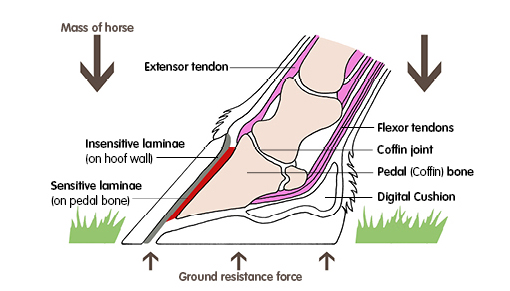One year on, an initiative to inspire more people to speak out on strangles and take proactive steps to protect their horses has already seen over 710 horse owners and 145 yard managers across the UK pledge their support!
Well over 200 cases of equine flu having been recorded in the UK so far this year, compared to just two cases in the whole of 2018. So it’s no wonder that the disease remains a big concern for horse owners across the country.
Unlike some other infectious diseases, like strangles, flu can drift on the air, making it much harder to prevent it from spreading. Vaccinating horses against flu is our best defence to protect them from infection.
Report outlines the outcomes from this special event.
Do you know your horse's BCS?
Dental care is crucial to your horse’s health and wellbeing, yet reports suggest that even the most conscientious owner may not give their horse’s teeth the attention they need.
Watch our video to see Welfare Vet Nicola explain why dental checks are so important:
Laminitis is a very painful condition that is caused by inflammation in the horse’s foot.
Symptoms
The signs to look for are a bounding digital pulse in the fetlock, growing levels of discomfort shown by painful expression on the face, and reluctance to move or weight shifting.
Even if you only suspect laminitis you should call a vet as it does not get better on its own. The damage is progressive and worsens over time, and does not resolve without veterinary and farriery intervention.
On Thursday 1st December 2016, a father and son were banned from keeping horses having previously (20th October 2016) pleaded guilty to charges of causing unnecessary suffering to 20 horses at their Norfolk-based sanctuary, Rainbow Meadows.
Since opening Rainbow Meadows (based in Foulsham) in 2013, both men have failed to act on advice offered by our vets and field officers, and by Trading Standards Officers.
Owner banned from keeping horses after neglect of mare.
A British winter can present a wide variety of weather conditions; from gales and driving rain to hard frosts and snow. Many horses are kept outside all year round and need to be able to cope whatever the weather. There are a lot of factors to consider when assessing to what extent a horse can withstand the change in season and how the winter might be made more comfortable. Let's explore this in more detail:
Natural hardiness and weight fluctuations
Hooves may look simple from the outside but the way they work inside is fascinating.
It’s well worth understanding them a little more in order to appreciate how keeping a healthy hoof protects the whole horse from injury and lameness.

Pagination
- Previous page
- Page 8
- Next page